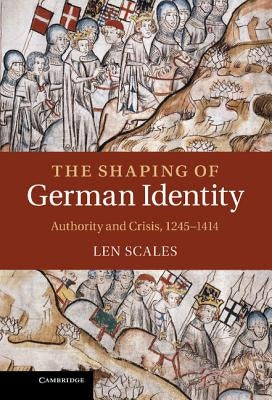1
/
of
1
Cambridge University Press
The Shaping of German Identity: Authority and Crisis, 1245-1414
The Shaping of German Identity: Authority and Crisis, 1245-1414
Regular price
€204,95 EUR
Regular price
Sale price
€204,95 EUR
Shipping calculated at checkout.
Quantity
Couldn't load pickup availability
German identity began to take shape in the late Middle Ages during a period of political weakness and fragmentation for the Holy Roman Empire, the monarchy under which most Germans lived. Between the thirteenth and fifteenth centuries, the idea that there existed a single German people, with its own lands, language and character, became increasingly widespread, as was expressed in written works of the period. This book - the first on its subject in any language - poses a challenge to some dominant assumptions of current historical scholarship: that early European nation-making inevitably took place within the developing structures of the institutional state; and that, in the absence of such structural growth, the idea of a German nation was uniquely, radically and fatally retarded. In recounting the formation of German identity in the late Middle Ages, this book offers an important new perspective both on German history and on European nation-making.
Author: Len Scales
Publisher: Cambridge University Press
Published: 04/26/2012
Pages: 636
Binding Type: Hardcover
Weight: 2.50lbs
Size: 9.00h x 6.10w x 1.40d
ISBN: 9780521573337
Author: Len Scales
Publisher: Cambridge University Press
Published: 04/26/2012
Pages: 636
Binding Type: Hardcover
Weight: 2.50lbs
Size: 9.00h x 6.10w x 1.40d
ISBN: 9780521573337
About the Author
Scales, Len: - Len Scales is a Lecturer in the Department of History at Durham University. He has published widely both on late medieval German history and on the history of peoples and nations in medieval Europe. He is the editor (with Oliver Zimmer) of Power and the Nation in European History (Cambridge, 2005).Scales, Len: - Len Scales is a Lecturer in the Department of History at Durham University. He has published widely both on late medieval German history and on the history of peoples and nations in medieval Europe. He is the editor (with Oliver Zimmer) of Power and the Nation in European History (Cambridge, 2005).
Share


